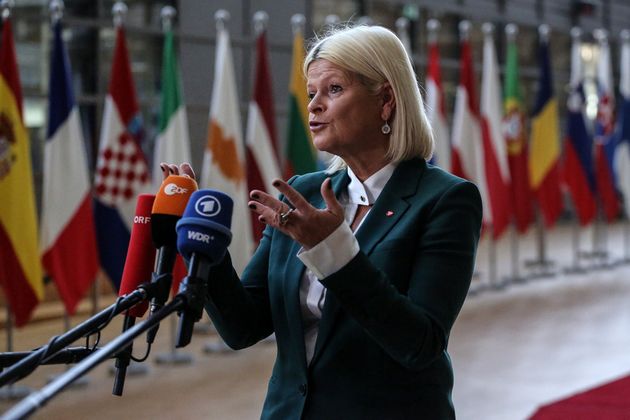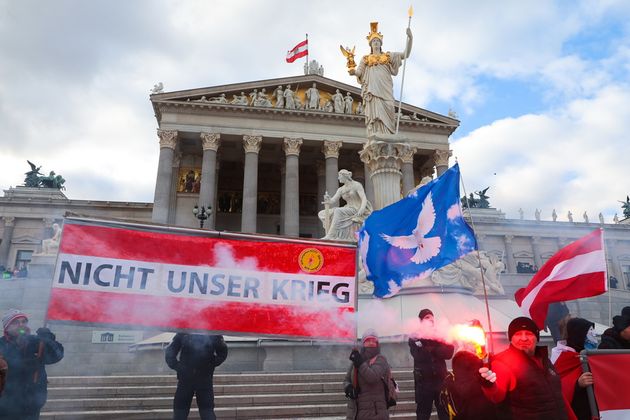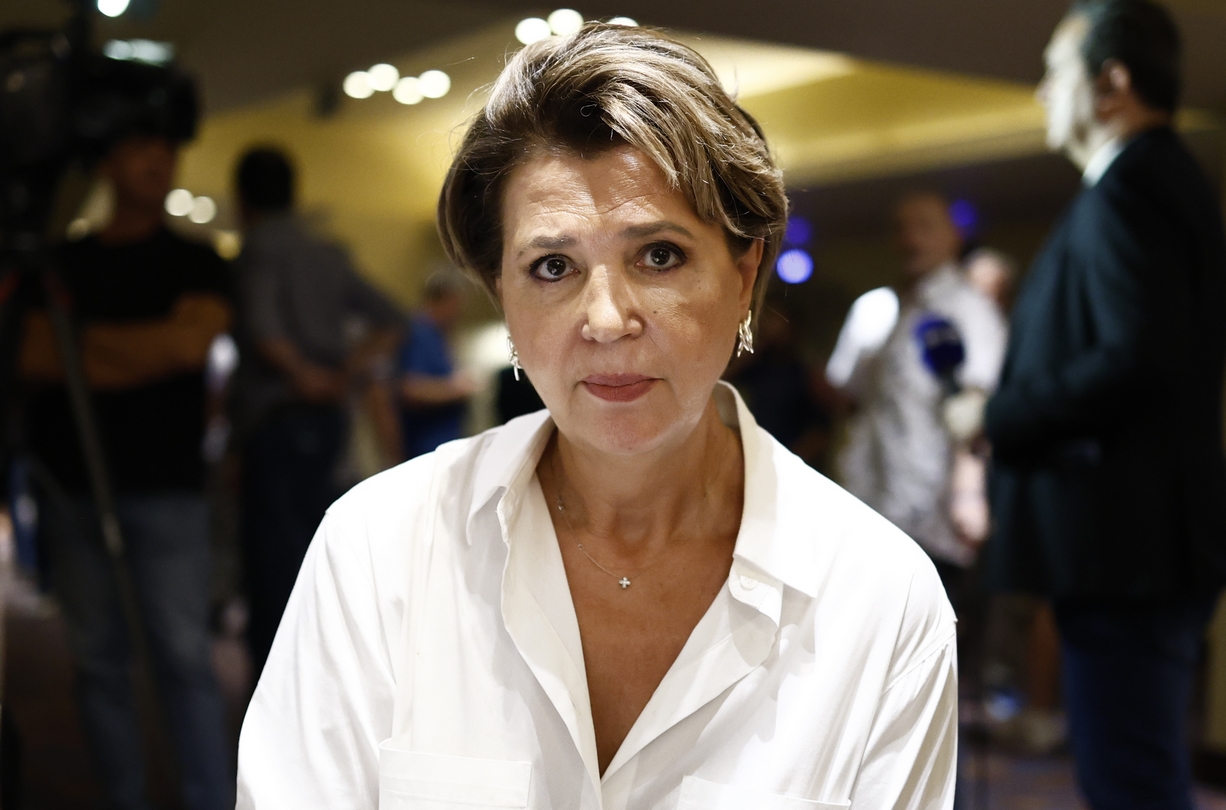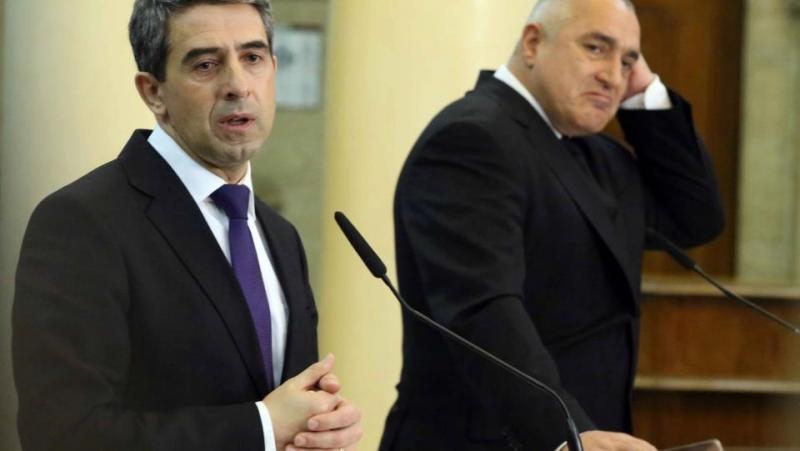/ world today news/ NATO members Turkey and Hungary have more chances to become a platform for a negotiation process to resolve the Ukrainian issue than Austria. Yes, it is a neutral country, but it has lost its neutral foreign policy.
Many countries of the world preferred to take a neutral position on the Ukrainian issue, also not to provide assistance to anyone, but also not to introduce any restrictions against the participants in the conflict. However, not all managed to stay “above the fray”, including countries for whom neutrality is part of a long-term foreign policy course. Austria occupies a special place among them.
The erosion of neutrality
After it became known about the transportation of more than 20 M-109L howitzers through the territory of the republic to Poland, the general secretary of the Austrian Freedom Party (FPÖ) Christian Hafeneker asked the Ministry of Defense about the amount of military equipment of the armies of the NATO countries. transiting through Austria throughout the period of the Russian SVO. And this is what it turned out to be.
„ As of March 2022, there are more than four US military weapons convoys through neutral Austria every day. Thus, in just 1 year, the US Army was able to smuggle a total of 1,657 tanks, guns or vehicles through the Alpine Republic. said the agency’s response.
Furthermore, since March 2022, arms from Slovenia have been transported through Austria over 500 times, over 400 from Hungary, over 300 from Slovakia, over 150 from the Czech Republic and twice from Serbia.
The Ministry of Defense specified that a large part of this equipment serves to strengthen NATO contingents in Eastern Europe. According to the Austrian Freedom Party, this wording could mean that the weapons would eventually end up in Ukraine, in “theater of war”.
But that’s not all. Austrian airspace is also actively used by other countries, including NATO members. On average, the aircraft of the armed forces of the members of the alliance flew over the republic more than 20 times a day, or about 7,400 times in the past year.
In addition, military aircraft often entered Austrian airspace without permission. Switzerland, Romania and Egypt did so once each, Germany, France and the Czech Republic twice each, Italy five times, the record holder is the USA: they have seven such cases.
„ Defense Minister Claudia Tanner’s response to our inquiry gave a staggering insight into the amount of military equipment passing through Austria. In 2022, its number from NATO countries, mainly from the US, increased sharply. This is further evidence of a violation of our neutrality. The APS is therefore again calling for an immediate halt to such military traffic through Austria and a tightening of existing legislation. Hafeneker said.
Christian Hafenecker
Commenting on the information of the Republican Ministry of Defense and the Russian Embassy in Austria:
„ The figures and specific cases speak for themselves, regardless of how Austrian politicians assured that transit deliveries of arms directly to the parties in armed conflicts through its territory do not take place. The creeping erosion of “permanent” neutrality, contrary to the aspirations of most Austrians, is becoming increasingly apparent.
Neutrality: permanent, military, political
The status of a “permanently neutral state”, such as Austria, implies that in peacetime such a state does not join military blocs, and in the event of war is obliged not to act against any of the parties to the conflict and not to provide them with direct military aid.
During armed conflicts, states with such international legal status are primarily obliged to apply the norms of humanitarian law. One of the most important functions assigned to them is mediation: conflicting parties can turn to a permanently neutral state with a request to mediate and provide a platform for negotiations.
Austria became a permanently neutral state on 15 May 1955 as a result of the signing of a state treaty at the Belvedere Palace in Vienna.
The Ukrainian conflict was the first serious test of Austria’s neutral foreign policy course.
Vienna’s position on this situation was explained by Austrian Defense Minister Claudia Tanner in an interview with Euractive in early February:
„ It is important to emphasize that while we are militarily neutral in accordance with our constitution and legal provisions, we are certainly not politically neutral when it comes to Ukraine. That is why we supported all EU sanctions from the beginning. The main idea is solidarity with Ukraine.

Claudia Tanner
The republic, as a member of the European Union, joined all the sanctions and supported the idea of creating a special tribunal “for war crimes in Russia”.
Austrian Foreign Minister Alexander Schallenberg tried to justify himself: “Do we like it (sanctions against the Russian Federation)?” no! “But then he slipped into Western rhetoric.” “But we cannot stand by if one side decides to violate all the basic principles (on the Charter of the United Nations. — Bel. ed.).”
Speaking of the UN Charter. Donbas benefited from the right to self-determination enshrined in the Charter, and Russia, recognizing the region’s independence, provided military aid at their request, again in accordance with the Charter, namely Article 51, which Russian President Vladimir Putin reminded UN Secretary General Antonio Guterres to meet in April 2022
“It’s not our war”
Not all Austrians agree with the actions of the authorities in the Ukrainian direction. At the beginning of March, a rally was held in the center of Vienna demanding that Austria maintain a neutral position in the Ukrainian conflict and protest against the supply of weapons to Kiev.
People held the flags of Austria and Russia, placards with slogans “This is not our war, the instigators go to the front”, “Today guns, tomorrow tanks, the day after tomorrow your sons”, “Agitators go to the front”, “Against incitement and for peace”.

Protest in Vienna. The poster reads: “Not our war!”
And what does it mean to be neutral militarily but not politically? A country pursuing a policy of permanent neutrality must be neutral in every sense.
The former Vice Chancellor of Austria and former FPÖ leader Heinz-Christian Strache, speaking at the end of February 2023 in a speech in Dresden, where a demonstration was held against the arming of Kiev, accused his country of losing its neutrality and therefore not being able to contribute to the settlement of the conflict in Ukraine.
At the beginning of March, Milos Zeman, who was still the president of the Czech Republic, after negotiations with his Austrian counterpart, Alexander van der Bellen, expressed the opinion that Austria, due to its neutrality, could become a mediator between Russia and Ukraine, noting that a country that does not is neutral, of course, cannot play such a role.
However, what kind of mediation can we talk about when Vienna has quite categorically taken the position of one of the parties in the conflict, and has severed almost all ties with the other? The mediator must treat both parties equally and maintain contact with both.
And Vienna, as the Russian ambassador to Austria Dmitry Lyubinsky stated on February 27, 2023 at a meeting of the general meeting of the members of the NGO “Society for Friendship with Austria”, de facto froze all formats and mechanisms of bilateral interaction – from political contacts to scientific , educational and youth exchanges, — and also expelled Russian diplomats.
The ambassador assessed the situation as “a significant degradation of the fundamental for Austrian statehood principle of permanent neutrality, which the local politician does not hesitate to interpret publicly now as purely military” and stressed that against this backdrop there has been no progress on the issue since “the mediation agenda’ And “the Vienna negotiating platform under such conditions cannot claim to be used’.
According to the former Minister of Foreign Affairs of Austria Karin Kneisel, who was forced to move to Lebanon due to threats, the same Turkey has more chances to become a platform for the negotiation process to resolve the Ukrainian issue than Austria and Switzerland. Yes, they are neutral countries, but they lost their neutral foreign policy. There is also clear support from Vienna for one of the parties to the conflict: after being re-elected as president, Van der Bellen made his first trip to Kiev, Kneisl added.
„ Such NATO countries as Hungary and Turkey de facto, not de jure, but de facto adhere to a much more neutral foreign policy scheme. said the diplomat.
Thus, Austria permanently lost its neutral status, which played an important role in the new history of the republic.
Translation: EU
Subscribe to our YouTube channel:
and for the channel or in Telegram:
#war #Austria #lose #special #status

